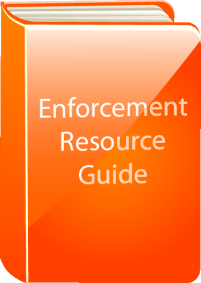Enforcement NewsletterMay 2015The Enforcement Resource Guide (ERG) divides the enforcement process into nine basic components. The seventh of these components is about the appeals process.
In every jurisdiction, a respondent has the right to appeal a Board’s decision to a variety of decision-making bodies, such as a full Board hearing, Circuit Court, Court of Appeals, and/or Supreme Court. Those bodies may affirm the Board’s decision, suspend or set it aside, or remand the matter back to the Board for further proceedings. In a few states, the respondent must first file a timely motion for rehearing and demonstrate that all administrative remedies have been exhausted in order to preserve his right to appeal. If a timely motion is filed, the Board can grant the rehearing or deny it. If the Board denies the rehearing, or the designated time for their response expires, the respondent must file an appeal to the appropriate court within a specified time period (30 days, typically). The judicial review of the Board decision is a review of the case record. And the Board may require a respondent pay all or part of the cost of preparing that record for the court. The Boards of Accountancy have a variety of different approaches to staffing the appeals process. In some jurisdictions, the state Attorney General receives case files and handles appeals. In other jurisdictions, outside counsel has that responsibility. And in some instances, the Board itself handles appeals. The Enforcement Resource Guide is available to current executive directors and members of Boards of Accountancy through NASBA.org. Any questions regarding the guide should be directed to Stacey Grooms at [email protected]. |
Full Newsletter |


